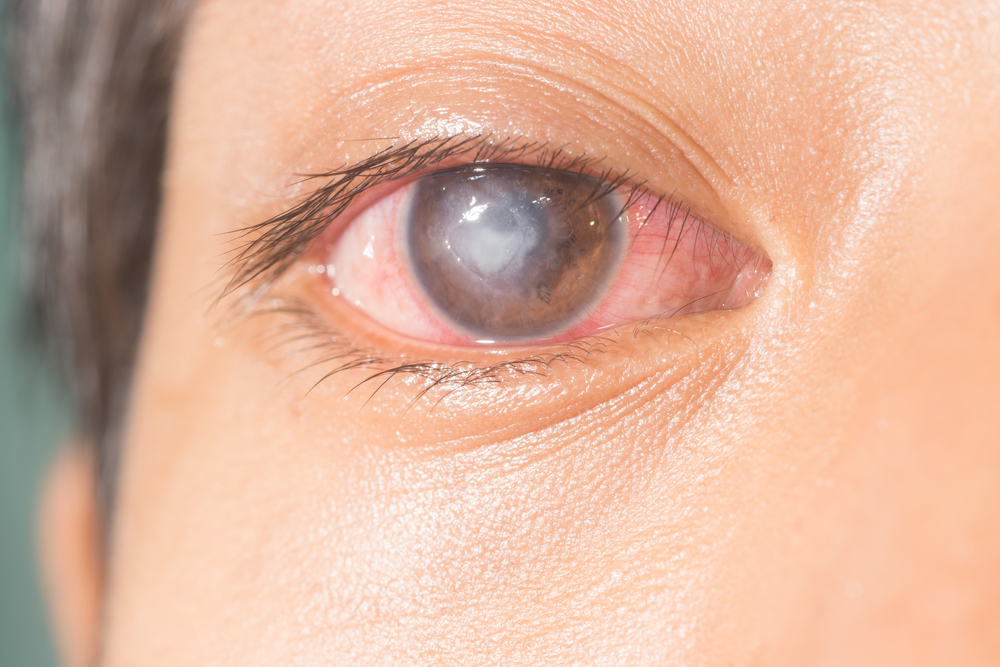
Wearing contact lenses is a safe and effective way to correct vision, but improper lens care or extended wear can increase your risk of serious complications. One of the most concerning issues is a corneal infection. At Gulfcoast Eye Center, we want our patients to understand the causes, warning signs, prevention steps, and treatments for these infections.
Common Causes of Contact Lens Complications
Contact lens–related infections usually occur when bacteria, fungi, or other microorganisms contaminate your lenses or lens case. Some of the most common causes include:
• Sleeping in contact lenses not designed for overnight wear
• Failing to replace lenses as directed
• Skipping proper cleaning or using tap water instead of disinfecting solution
• Not replacing contact lens cases regularly
• Swimming, showering, or hot tub use while wearing lenses
• Poor hand hygiene before inserting or removing lenses
Even small lapses in care can create an environment where harmful bacteria grow, increasing the likelihood of corneal infections.
Recognizing the Signs of Eye Infections
Prompt attention is critical when it comes to eye infections. Watch for these warning signs:
• Redness and irritation that doesn’t improve after removing lenses
• Severe eye pain or discomfort
• Light sensitivity (photophobia)
• Blurred or decreased vision
• Excessive tearing or discharge
• A feeling that something is stuck in your eye
If you experience these symptoms, remove your lenses immediately and schedule an exam. Delaying care can lead to complications that may permanently affect your vision.
How to Prevent Corneal Infections
The best way to prevent contact lens–related infections is through consistent lens hygiene and regular eye exams. Some prevention tips include:
• Always wash your hands with soap and water before handling lenses
• Use only the recommended disinfecting solution - never tap water or saliva
• Replace your contact lenses and case as directed
• Avoid wearing lenses while swimming or in hot tubs
• Do not sleep in your lenses unless your optometrist prescribes extended-wear contacts
The Importance of Regular Eye Exams
Routine eye exams are equally important. Even if you feel fine, your optometrist can detect early signs of infection or inflammation before they progress. These visits also ensure you’re staying up to date with your prescription and give you the opportunity to explore the newest contact lens options available, many of which are designed for improved comfort, safety, and eye health.
Treating Eye Infections
If an infection is diagnosed, your optometrist will create a treatment plan tailored specifically to your needs. The first step often involves prescribing medicated eye drops, such as antibiotics, antifungals, or antivirals, depending on the type of infection present. These medications target the underlying cause and help clear the infection quickly.
During treatment, you will be advised to discontinue contact lens wear until your eyes have fully healed. In some cases, additional prescription eye drops or ointments may be recommended to reduce inflammation, relieve pain, and support the healing process.
Your optometrist will also schedule close follow-up visits to monitor your progress and ensure the infection is resolving properly. This careful supervision helps prevent potential complications such as corneal scarring.
Keep Your Vision Clear and Healthy at Gulfcoast Eye Center
Corneal infections are a serious but preventable complication of contact lens wear. With proper hygiene, regular eye exams, and quick attention to any symptoms, you can protect your eyes and enjoy the freedom of contact lenses safely.
If you’re experiencing any signs of eye infection, contact Gulfcoast Eye Center to keep your vision clear, healthy, and protected. Visit our office in Sarasota, Florida, or call (941) 207-7700 to book an appointment today.






